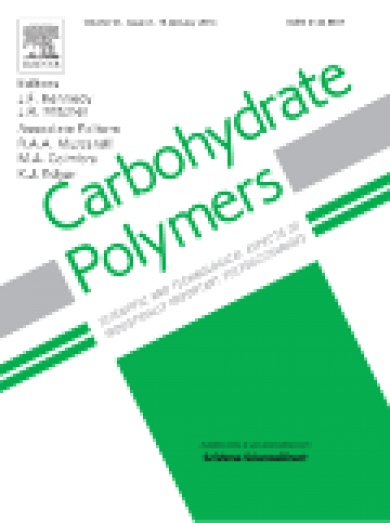Abstract
Starches isolated from rhizomes of two cultivars of edible canna (namely; Thai-green and Thai-purple) were modified by acetylation in order to reduce retrogradation and increase gel stability. Acetylation was carried out by treating starches with 5, 7 and 9% (w/w) of acetic anhydride at room temperature and pH between 8.0–8.5. The extent of acetylation increased proportionally with the concentration of acetic anhydride used. The percentages of acetyl group determined by titration method were 1.41, 2.05 and 2.55 for Thai-purple starch and 1.43, 2.02 and 2.53 for Thai-green starch. Observation under scanning electron microscope revealed that all of the modified starch granules were still in intact form and there was no difference between native and modified starches. The viscoamylographs of 6% starch determined by Rapid Visco Analyzer at 160 rpm showed that acetylation decreased the pasting temperatures (3–5 °C) and slightly decreased the hot paste viscosity. The setback values of acetylated starches were approximately 15–46% lower than those of native starches. Effect of pH and agitation on the pasting properties of native and acetylated canna starch was not significantly different. There were some variations in pasting attributes between starch pastes from Thai-purple and Thai-green canna which were due to their chemical compositions and molecular structures. Hardness (firmness) of canna starches gel was analyzed by a texture analyzer using a 20 mm diameter-cylindrical plunger. With 6% starch solids in water at pH 6.8, all acetylated canna starches gave much softer gel than those of corresponding native starches. For example, the firmness values of Thai-green canna starches containing 1.43, 2.02, 2.53% acetyl group and the native were 168, 193, 508 and 1915 g, respectively. The data of setback viscosities from RVA profiles, hardness of gels by texture analysis, and syneresis from freeze-thaw study, all indicated that acetylation could increase gel stability and substantially reduce retrogradation of canna starches.
Keywords
Canna starch; Acetylation; Paste; Gel; Modification; Esterification





